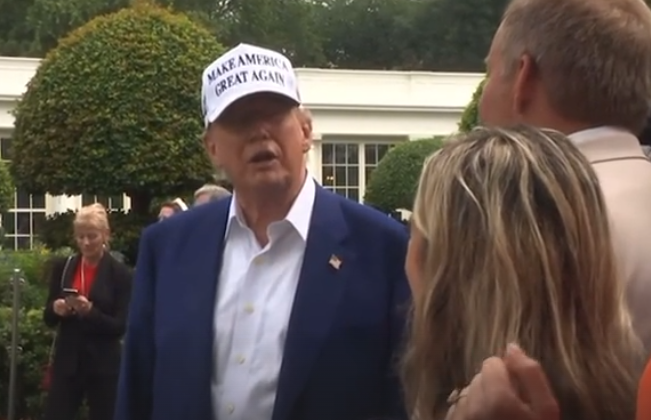Media Ambush Backfires: Trump Turns ’60 Minutes’ Into a Reckoning
- Norah O’Donnell tried an ambush and got turned inside out.
- Accusations of selective outrage expose a two-tiered justice system.
- Trump used the interview to flip the script and accuse the media of bias.
Last week’s “60 Minutes” sit-down looked like another scripted media hit, but it collapsed under its own assumptions. Norah O’Donnell opened with the familiar line about “political retribution” and expected the narrative to stick. Instead, President Trump pushed back hard and refused to play the victim card the way the press wanted him to.
The interview didn’t focus on accomplishments or policy; it focused on smear attempts and framing. When the correspondent hinted that actions against Democrats were somehow off-limits, Trump responded by pointing to the legal battles he has already survived. “You know what? You know who got indicted? The man you’re looking at. I got indicted and I was innocent. And here I am because I was able to beat all of the nonsense that was thrown at me,” Trump stated, reminding the American people that he is the true victim of a weaponized justice system.
The network’s questions often ignored obvious facts and context, painting ordinary accountability as persecution. Where was the outrage when people like “dirty cop like Comey” allegedly misled the public, or when critics who “took records all over the place,” faced scrutiny? And why is someone the press defends now being described by the President as “a terrible dishonest person” without a real airing of those claims?
The pattern is clear: dramatic coverage when the target is conservative, silence or spin when the target is allied to the establishment. Even the piece’s online companion leaned into selective outrage with a hyperlink that calls the oversight “breathtaking” while ignoring other stories of real misconduct. breathtaking
Reporters asked, “Where was Norah O’Donnell when Biden’s FBI raided Mar-a-Lago in 2022 and seized boxes of records from Trump’s Florida estate?” They also left out that “Court documents revealed Biden’s FBI authorized the use of deadly force during their raid on Mar-a-Lago,” details that would change the tone of any serious inquiry. That imbalance is the problem: selective curiosity, not equal application of the facts.
In the end, the segment read less like journalism and more like a setup that blew up on air. Trump used the platform to expose a two-tiered justice system and a media willing to shield allies while attacking opponents. The real takeaway is simple: when journalists pick sides, interviews stop being inquiry and start being performance.


Leave a Comment